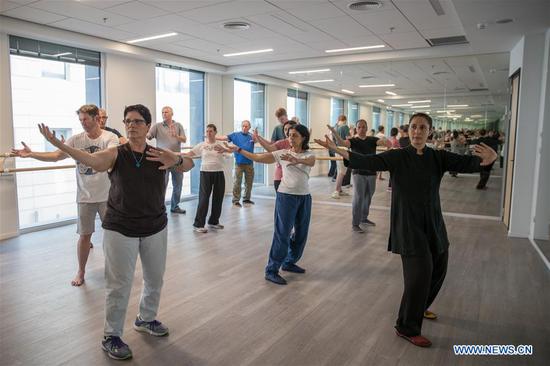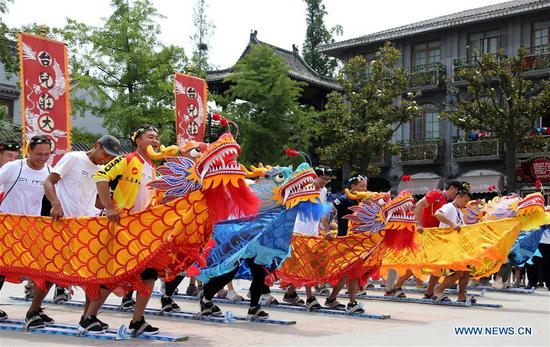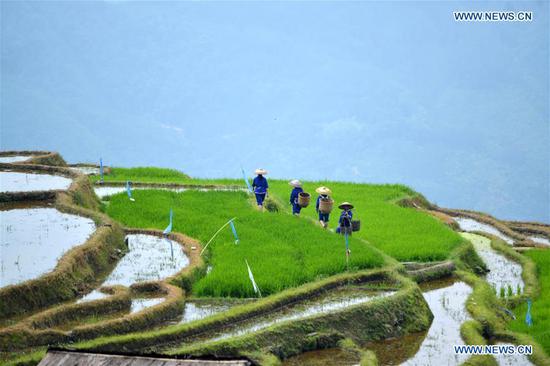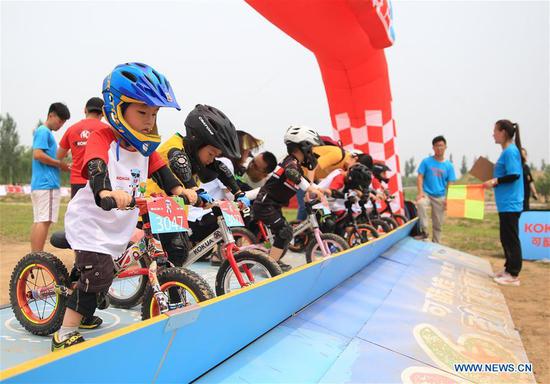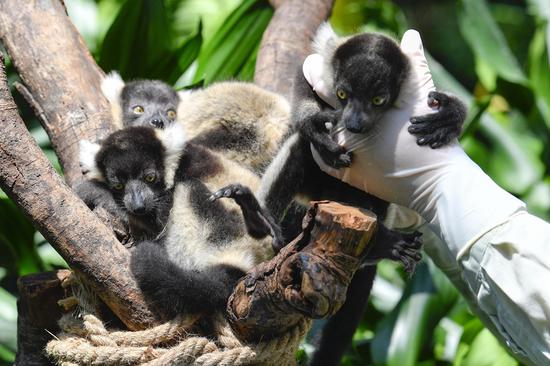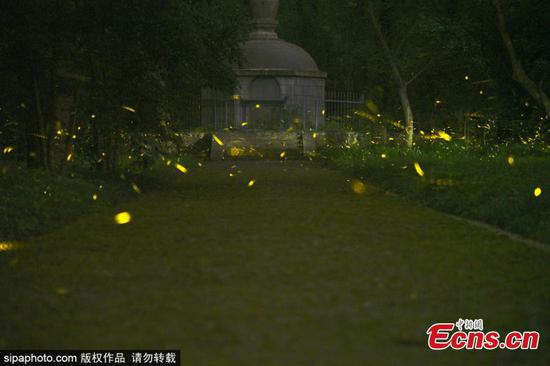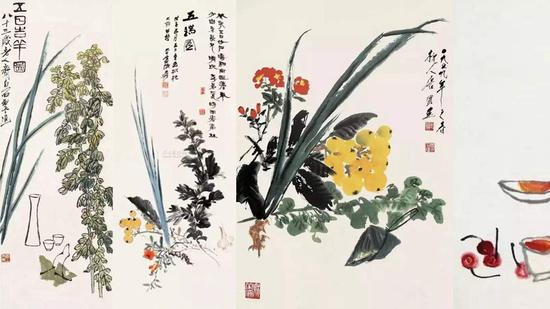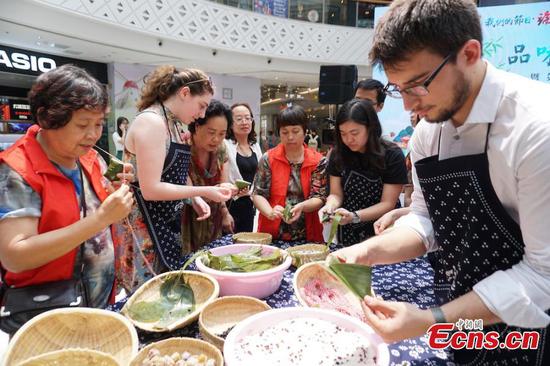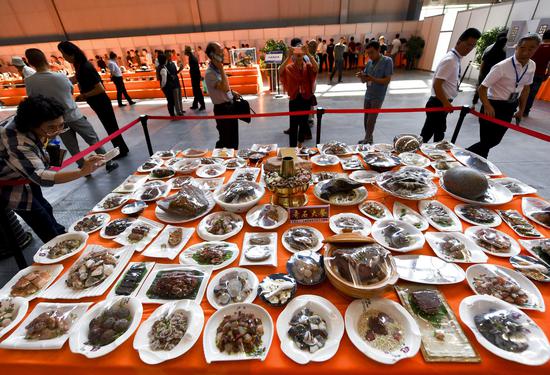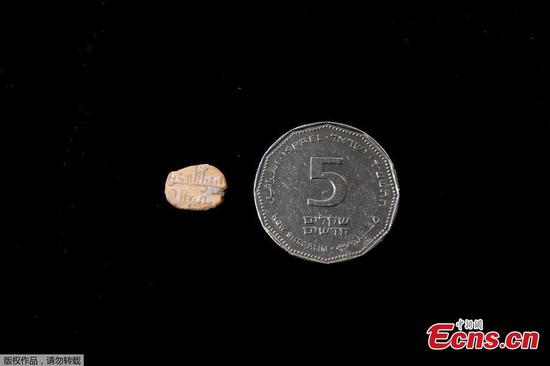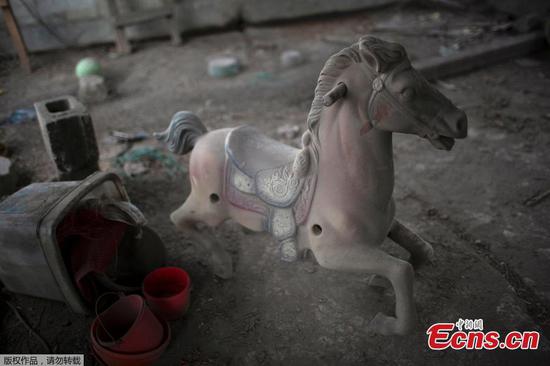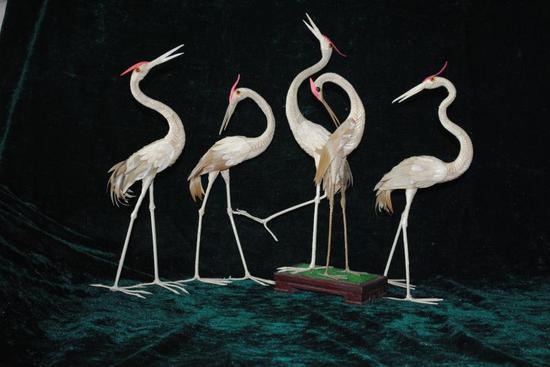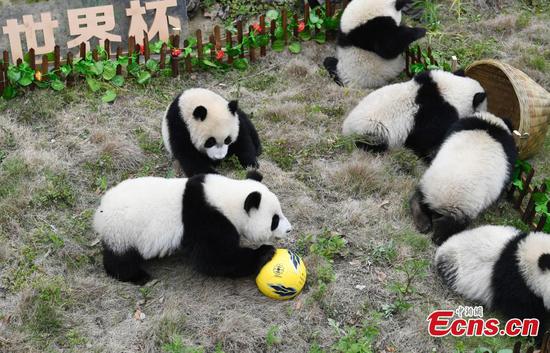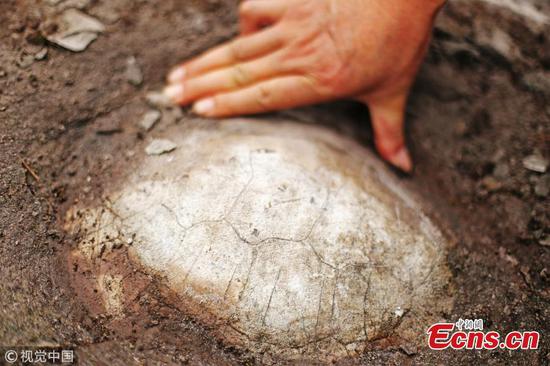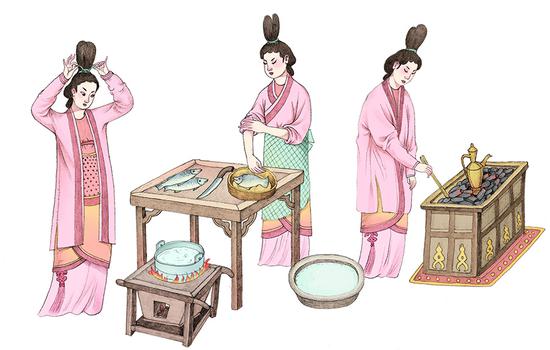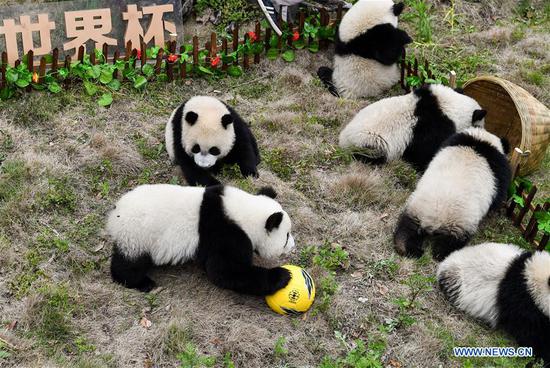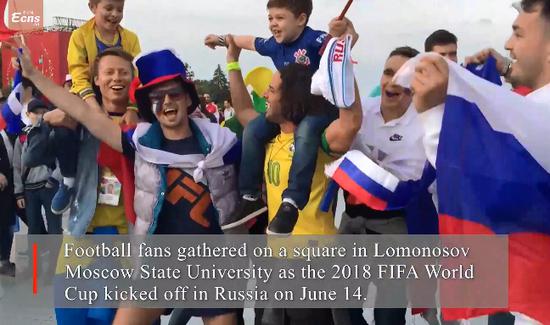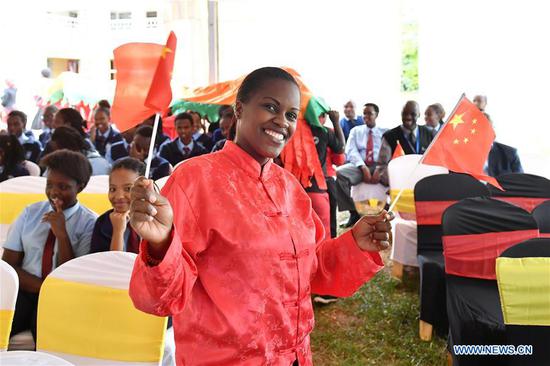
A teacher in Chinese costume from Rusinga School attends the unveiling ceremony of the Confucius Classroom at Rusinga School in Nairobi, Kenya, May 10, 2017. (Xinhua/Sun Ruibo)
Relations between China and Africa have advanced significantly, in particular in recent years, in various fields, with bilateral cooperation expanding to broader frontiers, which are witnessed, campaigned and backed by their leaders and peoples.
WITNESSED AND BACKED BY LEADERS AND PEOPLES
A grand dragon boat racing, a traditional folk activity normally held during China's Dragon Boat Festival which falls on Monday, kicked off in Uganda on Saturday, co-hosted by friendship associations of both countries.
This was the second time that the event carrying the the culture of the Chinese Dragon Boat Festival appeared in Uganda since it made debut in the country in May 2017.
China's top political advisor Wang Yang, who concluded his four-day visit to Uganda on Saturday, and Ugandan Vice President Edward Kiwanuka Ssekandi attended the opening ceremony of the event in Uganda's southern city of Entebbe.
Wang, chairman of the National Committee of the Chinese People's Political Consultative Conference, told the opening ceremony that the dragon boat racing in Uganda will again write a vivid story about the friendly exchanges between the two peoples.
Wang said that China and Uganda have actively held a diversity of cultural exchange activities in recent years, constantly consolidating the foundation of public will over the China-Uganda ties.
Ssekandi said that Uganda is the first African country that holds dragon boat racing during celebration of the Dragon Boat Festival.
The competition, integrating the two countries' traditional culture elements, is highly welcomed by the Ugandan people, and is a symbol of the two people's unity, he said, adding the event could promote the two countries' cultural exchanges to a new level.
As the friendly relations between China and Uganda are consolidated and deepened, the two countries will have more cooperation in fields of people-to-people exchanges, sports and tourism, he said.
KUNG FU AND MANDARIN POPULAR IN AFRICA
Ayoub Tewele, a third-year student at University of Dar es Salaam in Tanzania, is among a growing number of young Tanzanians and Africans who turn to learning Kung Fu (Chinese martial arts) and Mandarin with gusto amid blossoming ties between Africa and China.
Tewele started his lessons in Kung Fu and Chinese language six months ago, driven by a desire to keep physically fit, improve his understanding of China's rich culture, and realize his dream to visit China.
Tewele told Xinhua that practicing Kung Fu and Mandarin has been physically and intellectually rewarding.
Tewele went to last year's global Chinese Language Bridge Competition held in Shanghai after winning second place in his country's national Chinese language proficiency contest.
Also, Tewele and his peers love the China Culture Center established in 2015 at the University of Dar es Salaam, saying the center has fostered cultural exchanges between Chinese nationals and locals.
Over the past two and a half years, the center hosted more than 100 events to promote interactions between locals and Chinese nationals, including the latest events earlier this month, ranging from martial arts, Mandarin classes to demonstrations on preparing Chinese tea.
During the latest events, Huang Meishan, a Chinese teacher, and her colleague He Lei demonstrated to Tanzanian students how to prepare Chinese Kung Fu tea.
Suleiman Abdallah and his colleague Saidi Saleh were among the students. They appreciated Kung Fu tea's aroma, taste and medicinal properties.
The two young Tanzanians recently toured China for two weeks, where they learned about China's abundant culture and economic miracle.
In Kenya, the Chinese language and culture are also popular with young Kenyans.
Mwika Kiarie, an anthropology major who is studying Chinese language at the University of Nairobi's Confucius Institute, said he wanted to become "a bridge" for bustling China-Kenya exchanges in the near future.
"I look forward to becoming a bridge between Chinese and Kenyan business people though performing tasks like translation, logistics and even humanitarian affairs," Kiarie told Xinhua.
Xiao Shan, Chinese director of the Confucius Institute at the University of Nairobi, said young Kenyans' enthusiasm for mastering the Chinese language and culture is unmatched in the region.










